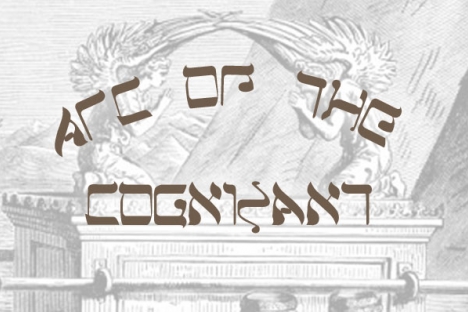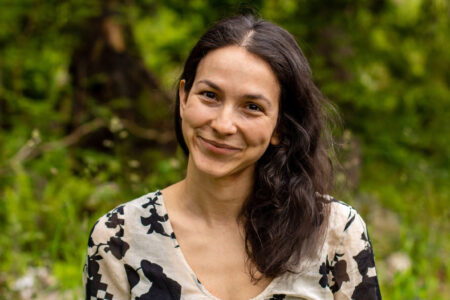Column: The Other, a ‘Useless Class’, and changing worlds
Know then thyself, presume not God to scan; The proper study of mankind is Man. — Alexander Pope
“Man is above all else mind, consciousness — that is, he is a product of history, not of nature. . . . Is it better to work out consciously and critically one’s own conception of the world and thus, in connection with the labours of one’s own brain, choose one’s sphere of activity, take an active part in the creation of the history of the world, be one’s own guide, refusing to accept passively and supinely from outside the moulding of one’s own personality?” — Antonio Gramsci https://www.thoughtco.com/cultural-hegemony-3026121
History [is] the fickle teacher… History cannot be told while it is happening… History is only run once, not many times (as is done in the experimental sciences). … The Future is not like the Past.” — Duncan J. Watts
Introspective: living in a crisis time
From the start of writing for this column in the online world, I have kept in front of me one preoccupation: this time you and I live in is very fraught, very perilous, and quite uncomfortable. I have often been guided to my topics for the column by posing this question or variations on it: how does one live well, and with goodness, in a darkening time? I believe that many of my columns since 2012 have been built around this query.
“Explanation”
Full disclosure: the categories, the terminology, and the biases of Marxian thought about human history and society still form my thinking about human behaviour in history and in the present. For that reason I chose the second of the quotations at the head of the column today. However, Marxian thought is inadequate to all that I require from it.
But here is a declaration by Marx that I find a very valuable corrective to what seem prevailing ideas. It is this: The ruling ideas of any age, are the ideas of the ruling class. He reminds us all that certain ideas gain great currency throughout society and culture, while others are lost in obscurity, and the reason might very well be which ideas the powerful want to spread. Power protects itself with cultural sanctions of its status.
Marx also famously said that philosophers try to interpret the world but the point is to change it. Make a difference to the world you were born into. I feel the rightness of that.
Bewilderment
Overlaying the Marxian foundation in my intellectual toolbox are the inspired insights of Charles Eisenstein: his teaching that we surely must admit we are bewildered today, by the human world and all that humans are doing to the planet and to each other, is deeply true for me. Explanation is not only a way to make things rational for us, it must satisfy other ingredients of human consciousness besides our Reason, in my opinion; Eisenstein gets it. Bewilderment is a sensible response.
I am personally quite bewildered by this present, this human reality in politics, culture, economy, and social order made by our past; the nineteenth- and twentieth-century development of Marxian theory – which promised to explain humanity rationally, in a very European-Enlightenment notion of explanation – is for me simply not a sufficient intellectual instrument, is not apt to the task of all that I require.
“Bewilderment is not something our cultural narrative will easily admit, for the grand story is that humans are always moving forward, progressing to better understanding of the material world – and admitting that one is bewildered is dissonant with that narrative of Progress. The Story insists that we have the answers to all the questions that matter, or we soon will, for we possess the sciences to find them.”
[https://charleseisenstein.org/essays/ted-a-choice-point/ ]
Thus, Eisenstein says, the admission of bewilderment is seen as a personal failing, not a system failing.
“The triumphal narrative of exploration and progress obscures the genocide of indigenous cultures. These various buffers, which allow contradictions to stand, have been necessary to operate a civilization built on exploitation and ecocide. Open up any social institution – politics, finance, business, education, medicine, academia, and even philanthropy – and you will find within it the same ugly machinations of power. …Today these buffers are disintegrating, despite the best efforts of established power to maintain secrecy, prosecute whistle-blowers, and control information.” — Charles Eisenstein, essay, The Lid is Off
[unless otherwise indicated, essays by Eisenstein are at https://charleseisenstein.org/essays/]
For Eisenstein, we are in the time between stories, when bewilderment is normal. A twentieth-century Marxian thinker had this to say about being alive in such a time:
“The crisis consists precisely in the fact that the old is dying and the new cannot be born; in this interregnum a great variety of morbid symptoms appear.” — A. Gramsci, 1935
The Other
For Eisenstein, the question that matters is not a question Science poses. He insists only one question matters in the present situation of our species as we confront one another: How does it feel to be you? “You” is the Other, the person you differ from, in your perspective.
The truth can only be sourced from the sincere question, “What is it like to be you?” That is called compassion, and it invites skills of listening, dialog, and communicating without violence or judgement.
[ https://www.filmsforaction.org/watch/what-is-it-like-to-be-you-feat-charles-eisenstein/]
Because, he says, no one is an Other, we are all One being in the story of interbeing, the story we must believe rather than the story of control and separation. Humans are not separate, one from another. Life is united and all life is part of one ecology. Feel that, feel the other is you — and you, the other, Eisenstein proclaims.
Eisenstein has developed his view over many years. From his perspective, there is no Other, but the perspective of Science insists on the discrete separate subjective self. The Cartesian “I” insists on its reality.I think, therefore I have being, is Descartes’ famous manifesto of personal identity, a self-evident truth for his time and culture. I am a subject and outside, the world, including other humans, is an object.
But in his latest essay, Eisenstein asks this question: “What would our political landscape look like infused with the common understanding that we are all one of us?”
https://charleseisenstein.substack.com/p/the-human-family
He is interested in the political landscape, not for no reason but for reasons of wanting to make things better. To change the world, not merely interpret it.
Science, the talisman of truth?
Rupert Sheldrake, a scientist who has won international repute for his work in botany, is also a philosopher of science, and he aligns with Eisenstein as a critic of science. “Science today pretends that all the important questions are already answered, or will be soon.”
There is irony in the fact that Marx fervently wanted, and energetically insisted, that the study of human history, politics, economics, and society were as scientific as the natural sciences of physics, biology, chemistry, or astronomy. He wanted to dedicate his major opus, Capital, to Charles Darwin; the famous biologist said no thank-you. Marx asserted that he and his colleague Engels were scientists, and their analysis of politics and Revolution was valid for discovering “laws” of politics and economics — in the same way Isaac Newton posited laws of physics. Or in the words of a Western Enlightenment poet, Alexander Pope, “God said Let Newton be! And all was light.”
In the nineteenth century, historians and sociologists desired mightily to be regarded, by their publics and by academics, as scientists on a par with Louis Pasteur or Alexander Graham Bell. Marxian socialism was a scientific theory, Marx declared, and any other writings about socialism – and he had several rivals among his contemporaries — were mere “utopianism”, lacking the rigorous scientific structure of his method, “historical materialism.” Marx, said Lenin later, had founded the science of Revolution and the “laws of motion” of class struggle. Marxian thinkers have clung to the notion that their social studies are a science and bourgeois sociology is not.
More surprising to me are historians who are not Marxian in conviction but who still strive to present history as a science, even re-naming it cliometrics and cliodynamics to give history a similar prestige as astronomy or astrophysics.
[See for example: https://peterturchin.com/cliodynamics/ — another attempt to make history a science. ]
History, the wannabe science?
One academic wittily calls this science-comparison perspective “physics envy”. (Duncan J. Watts, Everything is Obvious, p. 248) This author, Duncan Watts, will be the third resource for this essay, beside Eisenstein and Harari. He tells truths about History that every historian ought to read; I say this as one who calls myself an historian. Watts must be read on this subject.
“Historical explanations …are stories. … The key difference between science and storytelling is that in science we perform experiments that explicitly test our ‘stories’… [Historians] speak as if all we’re trying to do is make sense of something that has already happened. But in the next breath we’re applying the ‘lesson’ we think we have learned to whatever plan or policy we’re intending… [It is a] confusion between stories and theories…” (pp 133 – 134)
It is a pity Karl Marx and his school of historical materialists did not comprehend what Watts understands. Theory and story are different things. The essence of history is not to teach lessons; that is a confusion, and taking a lesson and a theory from history is “to ask it to contradict its essence” — as the great historian Isaiah Berlin put it so well.
Yuval Harari often calls himself a scientist; on page one of his vastly successful popular history, Sapiens: a brief history of humankind, he claims history is in a league with physics and biology. The study of the history of our species can be as scientific as the study of our biology is, he asserts. He reveres objectivity, facts, dispassionate meditative truth.
The waning status of science
Why, one must wonder, would it be so important to insist that history and politics and economics were sciences? Because: the prestige of Science in the narrative of Progress is immense; it was more intellectually-revered in the nineteenth century than it is now.
At present, the status and respect due to science is notably less emphatic than in, say, 1950. We have all become somewhat jaded about our trust in science, and how it might be challenged, and one must tread carefully in the culture wars in America when one takes a position on the meaning and truth of science. Somehow, in the USA, one is defined as either a conservative or a liberal depending on one’s orientation to Science, as is readily evidenced by anyone conversant with social media.
The covid-19 pandemic has exposed a chasm in popular culture between those who trust, and those who do not, Authority. Science and scientists are not universally respected.
Unneeded in capitalism: Harari on “the useless class”
I have referenced Yuval Harari, a surprisingly-celebrated and popular Israeli writer of historical and political analysis, and his pronouncements on our future have been widely propagated in media. He grabbed much attention by coining the phrase “the useless class” in his prediction that AI – artificial intelligence – is rendering a large number of people in the rich West “useless” in economic terms.
Harari refers to a new useless class that will be fighting economic and political irrelevance. A class of people that might lack mental resilience or conditions to hit refresh, to unlearn and relearn the skills needed in the 21st century. Those who are unemployed and unemployable. — Olivier Van Duren, political blogger
Capitalism has no use for a proletariat that cannot do innumerable tasks as well as AI. This point is relevant to Marxian thought, for Marx was completely impotent to see the future that we live in now, where capitalism has defeated socialism and the industrial proletariat has shrunk to insignificance in the wealthy nations. But what has not become insignificant yet is the electorate, just for so long as elections and public opinion matter.
Who is The Other now, and how does that Other feel?
Here I bring together the two ideas, one from Eisenstein, the other from Harari. The latter, an historian, is not trying to impart a spiritual lesson from history, but the former is. Eisenstein clearly prefers a beautiful human world where we do not see any person as an “Other.”
Harari simply says that the useless class is a category of Others — presenting a challenge to democratic societies with human-rights codes and the ethics of inclusion. The ethics of modern democracy and human rights refuse to accept that a large minority of citizens be condemned to poverty in a state of permanent uselessness.
For myself it is clear, the perspective Eisenstein offers is a spiritual teaching, not the sort we are used to entertaining in any discourse on public law, economics, politics, or rights. He has a vision of a more beautiful world that extends beyond the categories of those spheres. Eisenstein speaks as both cultural analyst and spiritual teacher when he urges the propagation of A New Story, where we fully live the meaning of interbeing.
Harari, in claiming to be scientific in his study of history and his attempt to foresee the future, is not comfortable with Eisenstein’s foray into questions about the human soul. He is a Buddhist, and for him soul is non-existent. In his book Homo Deus, Harari foresees our species ceasing to be what we are and becoming a quite different animal. “It is very likely, within a century or two, Homo sapiens, as we have known it for thousands of years, will disappear,” Harari has said on several occasions.
Can the useless inherit the earth? Post-biblical perspective on the meek
“But the meek shall inherit the earth; and shall delight themselves in the abundance of peace.” — Psalms 37:11
The West has a tradition in politics that we value as democracy, and democracy, one hopes and expects, will not actively cooperate with capitalists who have no use for their fellow humans because some cannot contribute to the economy of a nation. Capitalists in the past simply coerced humans into often-lethal labour in mines and factories by the simple expedient of making their very life depend on taking wages from the capitalist; death by poverty was the alternative.
The English Industrial Revolution was the first of its kind in world history. The new class of English urban labourers, dubbed the proletariat by Marx, were free but useless agrarian peasants owning nothing, driven by their landlords into the new and filthy cities where the factories devoured their labour; these workers lived and died as wage-slaves with no apparent regret from capitalists. When the Industrial Revolution was copied in France, Germany, and the United States, those societies too exploited the proletariat as cruelly and inhumanely as the British capitalists had done. (So much for the chance to learn from the “historical lessons” of the English industrial revolution; the capitalists of all nations tried to squeeze their workers just as the English had done before them, not avoid the inhumanity.)
Politics and social conscience had to intervene as policy and legislation to improve the lives of English workers; fortunately for the latter, England had evolved democracy of a very limited sort before industrialization, and that political fact had effects on what happened next for the workers. The English parliamentary system moved from rule by a small number of aristocrats to rule by elected democrats in power who responded to the abuses of industrialization; increase in numbers of people with the franchise promoted this.
Democracy, first in England and then later in other rich nations, put a stop to the worst industrial abuses. Mass popular parties, unions, and occasional violent street actions, did the same. The industrialized urban proletariat became a force to be reckoned with by the elites when workers organized into unions and socialist parties. The ideal of legislating human rights into statute law became basic to constitutions in Western European nations and in America, and liberalism became the basic methodology for ruling Western, democratic, modern capitalist economies and societies. Not all nations developed such methods.
The 20th Century battle of ideas: socialism vs. liberalism vs. fascism
But capitalist liberalism was challenged by proletarian socialism, in both the Marxian and non-Marxian Left; Marxists championed a violent revolutionary project for putting the proletariat in command of the State, in a dictatorship of one class — workers — over its class enemy, the capitalist bourgeoisie. This Revolution came to Tsarist Russia first.
The non-Marxian Left preferred gradualism and democratic politics to violent revolution designed to overthrow bourgeois liberalism. And a third -ism also mounted a challenge in the 1930’s, fascism. Western Europe did not imitate the communist system of Russia.
The struggle of the -isms continued through two world wars, the second war witnessing the alliance of Anglo-American liberalism with Russian socialism to defeat fascism and naziism. Then came a period of competition of the two erstwhile allied -isms, led by the USA and USSR. This was called a cold war — which I wrote about in my recent columns.
But by 1990, it was over. Liberalism won: by producing sufficient capitalist wealth to entice its class foes into parliamentary- or republican-democratic systems, the capitalists created social peace and made class warfare less and less viable. Socialism has followed fascism into the archives of liberalism’s defeated rivals for political and social order.
“Liberalism reconciled the proletariat with the bourgeoisie, the faithful with atheists, natives with immigrants, and Europeans with Asians by promising everybody a larger slice of the pie. With a constantly growing pie, that was possible. And the pie may well keep growing…” — Yuval Harari
The big expanding pie of capitalist material wealth and consumption steered Revolution away from Western nations of the “first world”. The formerly colonial world is still profoundly fractured by Revolution with many morphologies, most recently in Afghanistan. Religion, race, politics, gender, economics – all have a role in it.
Uselessness and Democracy
A new challenge faces democracies now, the prospect of not enough employment for the people who do not produce nearly so well as Artificial Intelligence.
Those who fail in the struggle against irrelevance would constitute a new “useless class” – people who are useless not from the viewpoint of their friends and family, but useless from the viewpoint of the economic and political system. And this useless class will be separated by an ever-growing gap from the ever more powerful elite.” — Yuval Harari
https://www.weforum.org/agenda/2020/01/yuval-hararis-warning-davos-speech-future-predications/
Harari is concise about the future, if not exactly scientific in offering some solid facts – he conjectures. He says in an interview: Things are better than ever. Things are still quite bad. Things can become much worse… the fact that things are better implies that we can improve matters. (See the interview at the end of his book 21 Lessons for the 21st century.)
Who will protect the working class when it does not work?
Without going into detail to “explain” how or why, let’s simply admit the truth in front of us regarding socialism. It has lost the contest with capitalism; socialism is far less important now than in 1910, 1935, 1960 or 1990.
The disappearances of the Soviet Union and its satellite communist states in Eastern Europe were the events in history that marked the collapse of the Marxian dream. Red China is not socialist as that word was once understood, now following a path called “capitalism with Chinese characteristics.” Mao is not revered as once he was.
[ see for example: https://theconversation.com/capitalism-with-chinese-characteristics-52738]
Xi Jinpeng, China’s present leader, has elevated himself to equality with Mao as a thinker.
There is no nation-state on earth now claiming to be socialist in the Marxian definition of that term, a proletarian state. The proletarian class everywhere is not organized for exercising power, and its specifically working-class unions are much less politically and economically significant now wherever one turns. In the modern West, where affluence even among sections of the middle classes is in decline, the industrial working class is less important than during the past century. Who would deny the political project that is the manifestation of that class – socialism – is in retreat and in defeat? A project not dead, but surely much debilitated.
Ethics: are we One, or are we us-and-them?
With the Western proletariat and working class in general so feeble and unorganized, with AI displacing them in employment, Harari asks what humans will do with their fellows who are not productive for capitalism?
He says he’s concerned that we must solve this challenge for the sake of our ethics and the values we hold dear as democracies in the West. No one wants to feel useless. Citizens in a democracy cannot view with equanimity the prospect of their fellows being useless. In his book on the 21st century, Harari uses history to aid his predictions.
What would life look likein a world where an ever-diminishing percentage of human beings earn money through effort? While robots and A.I. aren’t believed to fully supplant human labor, as much as to supplement it, even a modest — but permanent — reduction in employment will force governments to do something to support those humans. The alternative is a bifurcation of a population, with healthy, well-cared for citizens on one hand, and those who descend into some hellish form of terrestrial mayhem, on the other. It’s hard to imagine any even pseudo-democratic government allowing this.
[ https://medium.com/codex/the-rise-of-the-useless-class-f5172a49b7c8]
If democracy continues, the useless will naturally not be politically inert. They will exert their power as voters and citizens to claim the human rights the constitutions of Western nations guarantee. They will insist they are not treated as objects but subjects. This is the prediction of Harari in his book Homo Deus, who sees that the elite or ruling class will have a major challenge from the useless class and the still-employed classes who support the useless in their claim to a decent standard of living in the first world.
Universal guaranteed basic annual income (for short, UBI) will be the solution proposed by some. Canada already has witnessed the CERB program during the pandemic, a program that foreshadows basic income policy. Harari has much to say about UBI.
Entropy and Control
Making the world better is the underlying theme of this essay. Anyone conversant with political news knows there are huge problems in Western democracies that need to be solved somehow. Here is Eisenstein addressing a couple of outrageous examples of problems for liberal and progressive (“woke”?) citizens of Canada or the West generally.
“… the middle-aged white Brexit or Trump supporter has legitimate grievances that cannot be dismissed as white entitlement just because things are even worse for people of color. If they feel betrayed by the system, it is because they have been. Look around at the world. We can do much better than this. Everybody knows it. We don’t agree on what to do, but more and more of us have lost faith in the system and its stewards.It is not only the legitimacy of the elites that is fragile, nor just Britain’s economy; it is also the entire financial system: an overleveraged agglomeration of bubbles that will all pop when one pops. Maybe the Brexit vote induces panic because it reminds the financial markets and their administrators that they cannot hold it together much longer. They can’t even buy public allegiance in one of the world’s richest countries. Ordinarily in politics, everyone pretends that they know what to do. Politicians pretend that to voters.” — The Fertile Ground of Bewilderment, Charles Eisenstein
As I noted Harari saying, things can get worse — and we have some power to choose our futures, so how will we steer a course in this age of unravelling socio-economic-political entropy? As he also notes, it is the powerful who will try to control the entropy, for they have a vested interest in not losing their elite positions. If he is correct in his warnings to the Davos summit, homo sapiens may not be the species we were in a very short time.
The experts to whom our elites turn for political and other advice, are often social scientists in universities and think tanks, experts on human mass behaviour like Duncan J. Watts, whom I have cited with admiration in this essay. Here is his summary on what social science can do, in the book I referenced above:
“What kind of problems can we hope to solve?… what can social scientists hope to discover that an ordinary intelligent person couldn’t figure out on his or her own?
… And how can we connect network search and social influence, decision making, incentives and performance, perceptions and polarization with the “big” questions of social science – like inequality, social justice, and economic policy?” [pp. 262 – 264]
Watts is not only a social scientist, but also leans upon certain philosophers he cites in his work, particularly John Rawls and Michael Sandel. He points to the intense labour of research that has enabled physicists and biologists to reach the zenith of applied knowledge they can demonstrate, with the medical advances thanks to the genome project as his prime example of science making human lives much better. Watts believes that the new technologies of mobile, Web and Internet communications are becoming just as powerful for social science as the telescope was for astronomy. We can bring this new tech to bear on understanding “social problems such as urban poverty or economic development or public education.”
Watts ends his book with the words, “Let the revolution begin…”
Conclusions
Having written this essay and posed the questions to myself in it, am I less bewildered than when I began? Has the work of research and writing helped my understanding?
Perhaps. I have said in a previous column that I no longer want to end any of my writings with exhortations to readers for what they should do or be or feel or think. Nor do I wish to quote other wise, profound, or spiritual minds who have just the right word for the conclusion I myself cannot find to express a summing up.
I leave only with good wishes, my spirit to yours, in this season we have particularly set aside for endings and beginnings, as the sun returns again after that long night on the solstice. Be well, be good to those around you, find meaning where you can, take yourself outdoors every day to feel the sun and air.

























